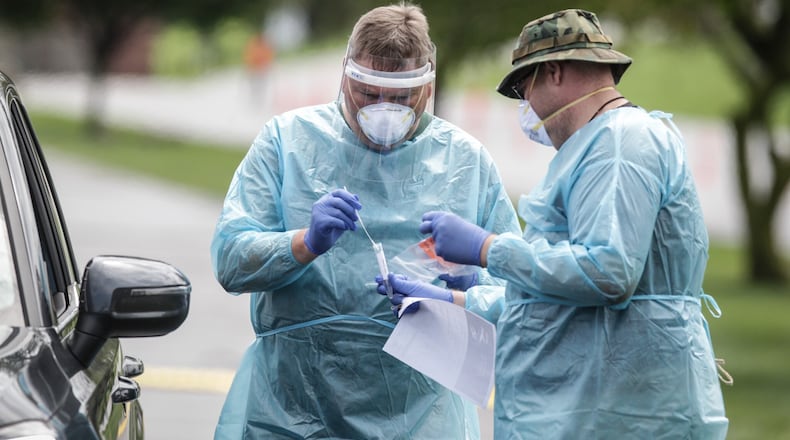Three ways to give help
1. Donate blood.
You can donate blood to help out as blood centers enter the fall season with significant number of cancelled blood drives in September due to COVID-19 disruptions. Many employees continue to work from home and multiple area high schools began the year with remote learning, which also means cancelled blood drives or reduced capacity.
Community Blood Center in Dayton said Wednesday it was facing a critical need of type O-positive blood and is encouraging donations of all blood types. Make an appointment to donate at DonorTime.com.
2. Help a nursing home or assisted living resident.
If you want to get involved and advocate for local nursing home and assisted living residents, you can volunteer with the local ombudsman’s office.
The Long-Term Care Ombudsman Program advocates for residents rights in nursing homes and in other types of long-term care, such as assisted living and homes for people with developmental disabilities.
Chip Wilkins, long-term care ombudsman with the Dayton office, said local volunteers are helping with continuous rounds of calls to all the families of long-term care residents in the area.
“We’ve been calling all the families and touching base and asking questions and seeing if they have any complaints or issues,” Wilkins said.
Contact the volunteer coordinator for the Dayton-area Long-Term Care Ombudsman Program at 937-223-4613 or 1-800-395-8267. Or you can fill out a form online at www.dayton-ombudsman.org/volunteer.html. The Dayton-area office serves Montgomery, Preble, Greene, Clark, Miami, Darke, Logan, Shelby and Champaign counties.
3. Fill out the Census.
Local governments across the region have seen their budgets take a hit during the pandemic and related job losses.
One small way to help our your community is to go online to 2020census.gov or call 844-330-2020 to fill out the Census, to help make sure everyone is counted. The count shapes how much federal money comes back to local programs and how much representation the area gets in Washington, D.C.
If you need help, here are some options
UnitedWay of the Greater Dayton Area
You can call 211 to get help with a person who can review your situation and connect you to resources for your particular needs.
There’s also more information on local resources or how to help at dayton-unitedway.org/.
Domestic violence
Domestic violence victim advocates are worried the pandemic has left some people at home in unsafe situations. If you need help or are worried about someone else and unsure what to do, the YWCA Dayton’s 24/7 Crisis Hotline is at 937-222-SAFE (7233). Call 911 for emergencies.
Michelle Sayer, YWCA Dayton clinical director, said that while calls overall to the 24/7 hotline have decreased slightly compared to 2019, caller lethality — the likelihood of the situation to cause death — has increased dramatically, with nearly five times as many callers reporting an immediate safety concern in April 2020 alone.
“This number has also increased every month since, with the time sensitivity of calls at triple this time last year,” Sayer said.
About the Author
